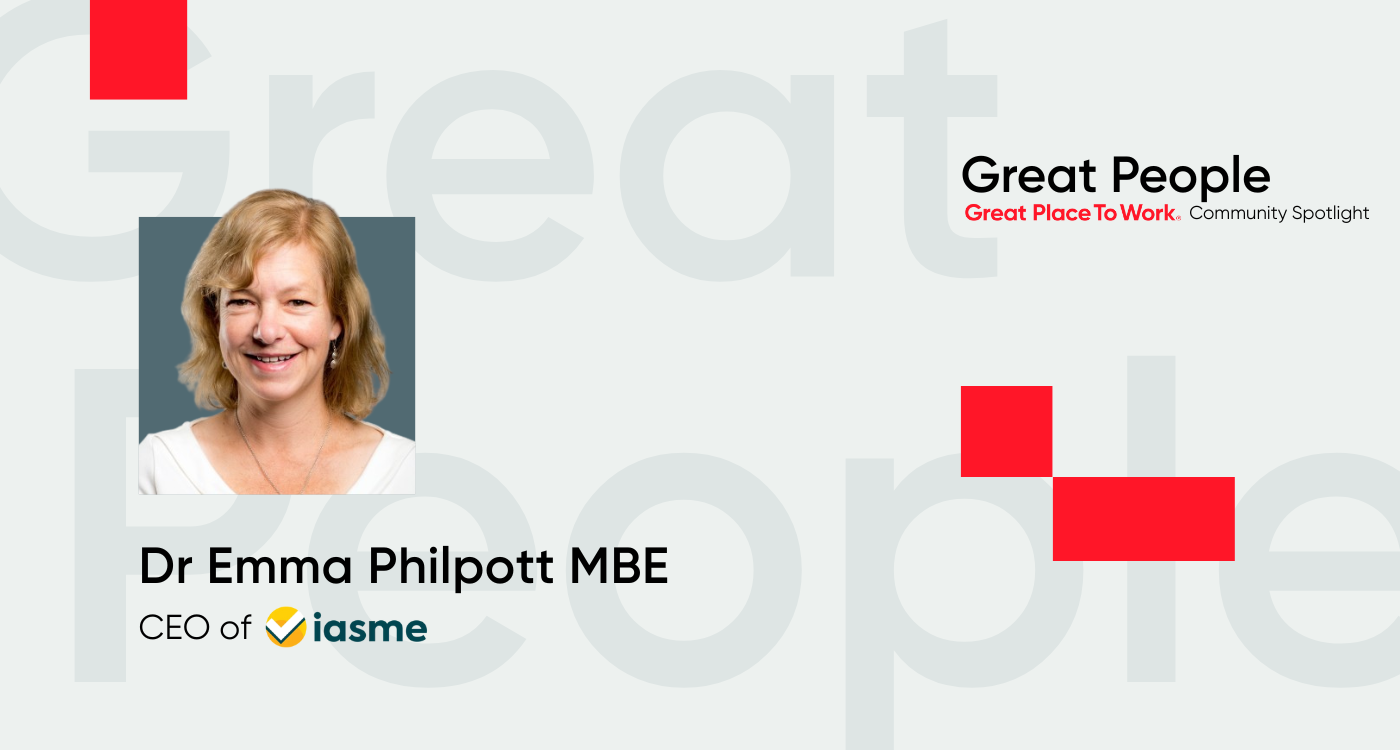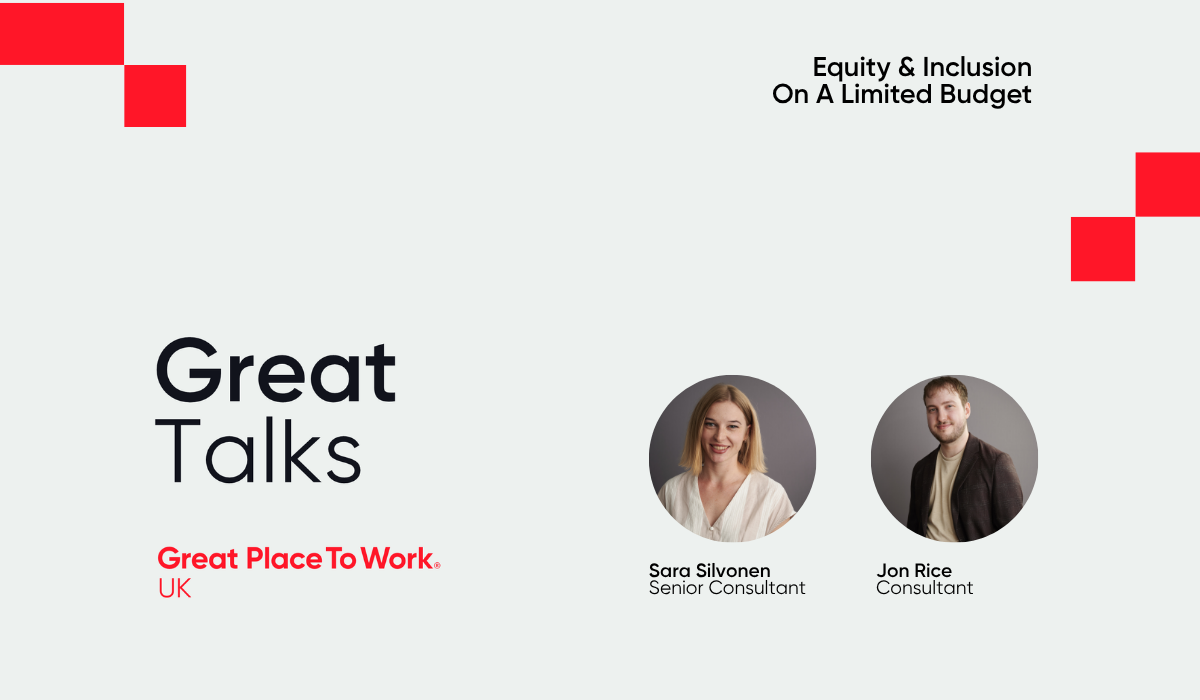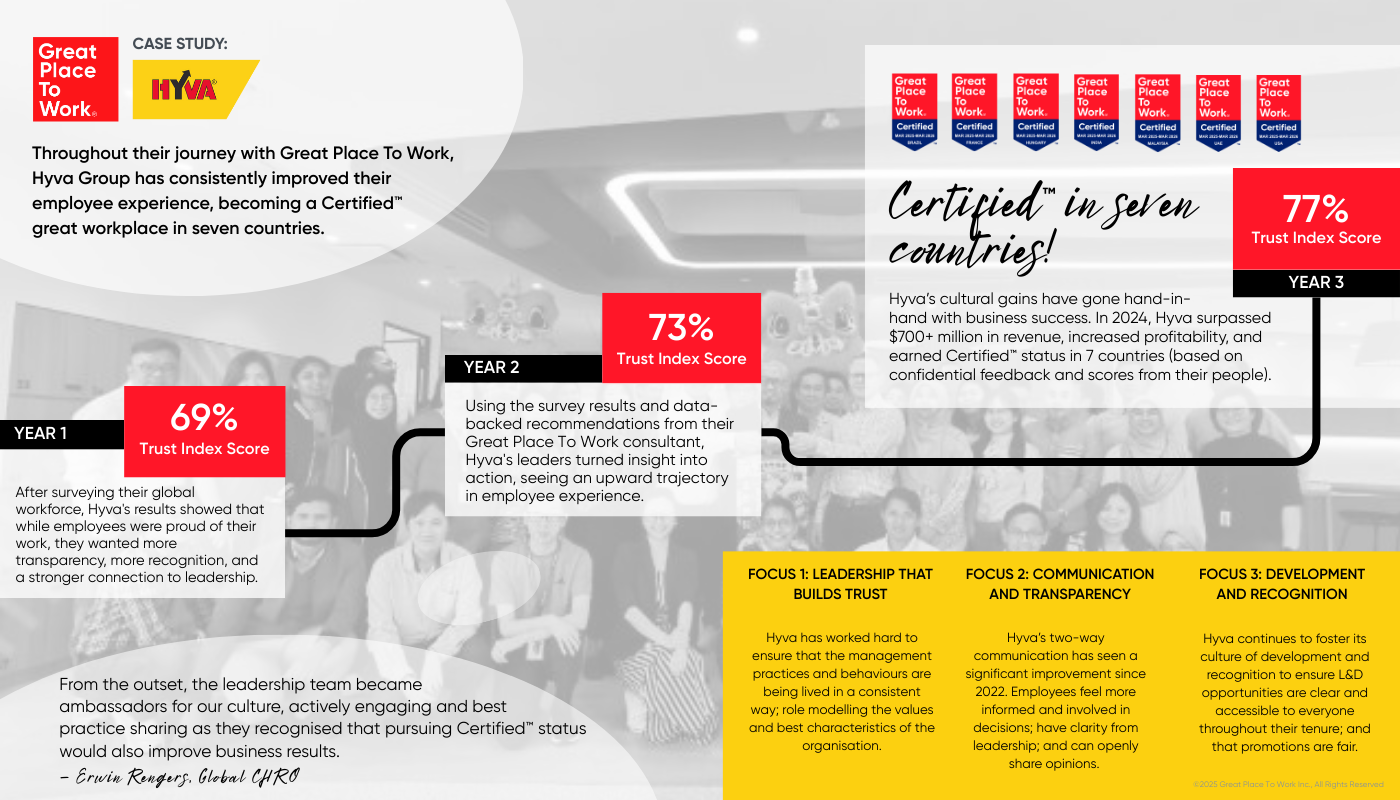Great leaders make great companies.
Studies of managers and companies consistently show that effective leadership improves both internal metrics (like employee retention) and external ones (such as financial performance).
Below are 7 ways you can help line managers to improve their leadership and build a better employee experience for all.
Gathering perspectives from over 100 million employees globally over the last 30 years has shown us that leaders who intentionally build trust – regardless of who a person is or what they do for the business – do better than those who don’t.
The most effective leaders typically focus on:
- Working with teams, seeking ideas from team members and involving them in decisions that affect them.
- Recognising employees, especially by calling out accomplishments and helping people get ahead in their careers.
- And inspiring employees to follow, by showing them that leaders are competent, honest and reliable.
So how can you cultivate leaders like this in your own organisation?
How to help line managers improve their leadership skills:
1. Invest in leadership coaching.
The Covid pandemic has forced line managers to adapt to new styles of leadership, particularly when working entirely remotely from their colleagues and teams.
Many are feeling increasing pressure to perform at higher levels than ever before. “With constant change and challenge, there is often a disparity between what has been expected of managers previously and what is now asked of them,” explains Dr Petrina Carmody, Principal Consultant and Leadership Coach at Great Place to Work® UK.
“Coaching helps bridge the gap, and can be particularly valuable in supporting people at times of change – whether related to organisational change or individual change, such as moving roles or seeking promotion.”
Your own employee survey data can provide valuable insight into which departments within your organisation may benefit from coaching, and when.
“In teams where survey results are less favourable, coaching can be enormously powerful in supporting managers to improve their own and their team's experience and performance."
Great Coaching:
- Is tailored to meet the needs of each individual
- Provides a safe space to listen, reflect and grow
- Can improve coachee communication, innovation and problem-solving
- Can improve employee engagement, collaboration and retention
2. Identify the most important behaviours for great managers in your organisation.
While certain characteristics of manager effectiveness apply across most companies, true insights come from identifying the unique behaviours that best align with your unique mission, culture, customer needs and strategic goals.
Think about which managers inside your organisation currently build high-trust relationships (you can use employee survey data as a source of truth here too).
Next, interview these managers, asking them how they did what they did. You can then use this information to identify several key behaviours that create a great work environment and share them across your organisation so that everyone benefits.
3. Build trust.
Employees follow leaders they feel are credible, fair and reliable. They trust managers who they believe to be consistent in these traits. As a manager, you can instill trust in three ways:
- Create credibility: Do what you say you are going to do. If you promise your employee a project or learning opportunity, follow through on your word.
- Be respectful: Ensuring your people are set up for success. Arm them with the resources and support they need to do their best work.
- Make fair decisions: This is fundamental for building trust in your management effectiveness, especially when it comes to promotion decisions and for people who are different than you (whether gender, racial background or tenure).
4. Be a true collaborator.
This doesn’t mean reaching consensus or decision-making by committee. Work with your team to co-create plans and concoct new ideas.
This means real collaboration through:
- Involving your team in decisions that affect them. Get their feedback before decisions are made. If moving to new office space, for example, address any concerns employees may have about this change before implementing new practices and policies.
- Seeking people’s opinions on a new problem you’re trying to solve. Diverse perspectives can inspire creativity and drive better innovation than when we work alone.
- Continue regular one-to-ones and informal conversations, such as staff lunches (which can be enjoyed virtually or in person), walking ‘meetings’ or coffees away from the office.
These effective management behaviours will make your employees feel included, valued and, in turn, inspired to do their best work.
5. Make employee recognition your ritual.
Employee recognition signals to your people that their contributions are acknowledged and appreciated. It’s a key driver of employee performance, just like pay, promotions, inspiring work, training and autonomy.
Line managers can make recognition part of their ritual through “triggers” – such as setting tangible goals for their teams, and then celebrating these small wins with credit given to those who achieved them. By making expectations clear upfront and communicating how goals will be tracked, managers will develop a more collaborative and supportive environment for employees to thrive.
One creative method we’ve seen comes from Hilton. Through their annual ‘Recognition Calendar’, Hilton has helped middle managers to celebrate their people by providing easy-to-implement ideas to thank employees every day of the year.
6. Rethink how you promote your people.
If managing a larger team is the only way to a promotion in your workplace, you may need to rethink your promotion process. After all, some people could be more valuable to the organisation as an individual contributor.
Smart companies (and effective managers) create multiple avenues to success for employees. They help people earn new responsibilities and develop their skills through new projects, lateral moves and stretch assignments.
They also take an active role in employees’ development plans and keep an eye out for additional ways employees can add value to a project or lend their expertise to something outside of their general scope of responsibilities.
7. Flip the traditional performance process.
It's common for managers to rate and review their employees, but great managers want feedback to flow both ways. They make sure their employee surveys not only look at organisational culture as a whole, but management effectiveness too.
At Great Place to Work-Certified™ companies, employees reflect on management’s behaviour; whether management shows a sincere interest in them as a person (and not just a cog in the machine); and how much management’s actions match its words. This authentic feedback gives a nuanced picture of management’s effectiveness.
Now it’s your turn.
Learn how our consultants can help you adapt your culture to best fit the post-pandemic working world.










